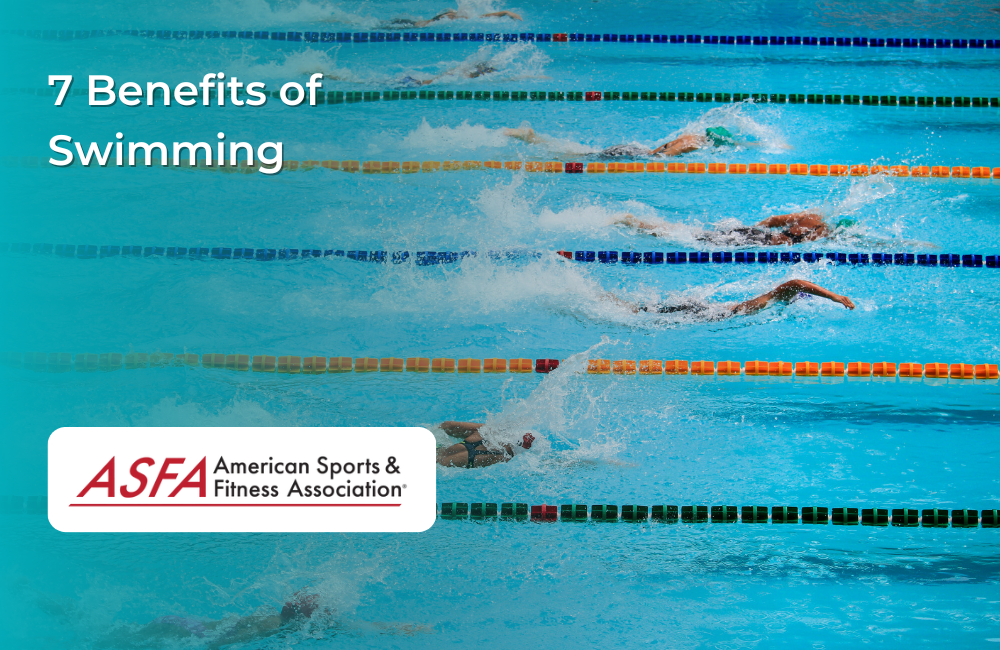Swimming is a great way to exercise. It's low impact, so it doesn't put as much stress on your joints as other forms of exercise do. Plus, it can help protect against cancer and lower blood pressure. Here are 7 benefits of swimming:
Swimming is a great way to exercise.
Swimming is low impact, so it's good for your joints, and it can help you build endurance. If you're not used to exercising or don't know how to start an exercise routine, swimming is a good option because it's easy on the body and won't cause injury as easily as other forms of physical activity do.
If you're looking for something relaxing but also want some physical activity in your day, swimming might be right up your alley!
It's good for your heart.
Swimming is a low-impact exercise that can strengthen your heart. It's also good for lowering blood pressure and reducing the risk of heart disease, stroke, and other cardiovascular problems. Swimming is a great workout that burns calories quickly--a 150-pound person will burn about 400 calories per hour of moderate swimming (about as much as they would be jogging). Swimming is also low impact, so it doesn't put as much stress on your joints as other forms of exercise do.
In addition to helping with weight loss and toning muscles, regular swimming may help improve balance in older adults who have become less stable due to osteoarthritis or other conditions affecting mobility throughout life's stages.
It can help fight depression.
Swimming is a great way to get out of your head and focus on something else. It's also a great way to relieve stress, which can help you sleep better and feel happier. Swimming helps you lose weight and improve cardiovascular health, so it's likely that you'll be healthier overall by regularly swimming. If you have trouble sleeping, or if your depression keeps waking up during the night, try going for a swim before bedtime--it might help!
It helps you relax.
Swimming is an excellent way to relax. The water is warm and soothing, making it a great place to float around and enjoy the feeling of weightlessness. Plus, swimming can be quite therapeutic; when you're in the pool, your muscles are relaxed while they move through fluid--this helps them recover from any stress they may have experienced during the day.
Some people find swimming meditative: They use this time alone with their thoughts as an opportunity for reflection or creative inspiration (or simply just enjoying nature). Swimming laps require concentration on technique rather than other distractions like work or family responsibilities--it's easy for swimmers to get lost in thought while doing so!
It's low impact, so it doesn't put as much stress on your joints as other forms of exercise do.
One of the most appealing aspects of swimming is that it's low impact, so it doesn't put as much stress on your joints as other forms of exercise do. This can be especially beneficial if you have joint issues or a bad back since this type of exercise won't cause any unnecessary pain or discomfort.
Swimming can also serve as a great warm-up for other types of workouts and sports activities--especially those involving running or jumping (such as basketball). If you've been thinking about getting back into shape but have been holding off due to physical limitations, this might be just what you need!
If you're looking for places near the home where people swim regularly, try public pools; fitness centers with pools attached; gymnasia (gyms) with indoor pools.
You can burn a lot of calories in the water, especially with interval training.
Swimming is a low-impact exercise, which means it can be easy on your joints and muscles. But that doesn't mean it's not good for burning calories! In fact, swimming is one of the best ways to burn calories in the water. The reason for this is that water has more density than air does--meaning that if you're moving through it at a certain speed, it will take more energy for your body to move through that same distance as compared with moving through the air at the same speed. That means when swimming laps or engaging in other types of cardio workouts like sprints and intervals, you'll be burning more calories per minute than if you were running on land or biking outdoors.
Swimming also includes both aerobic exercise (which raises heart rate) and resistance training (which builds muscle strength). This combination allows swimmers' bodies to work harder than those who only do aerobic exercises such as running or cycling without resistance training components included.
It can help protect against cancer and lower blood pressure.
Swimming is a great exercise for cardiovascular health. It can help lower blood pressure, which can reduce your risk of heart disease and stroke.
In addition to these benefits, swimming also helps protect against cancer. Swimming regularly has been shown to reduce the risk of breast cancer by up to 50 percent and colon cancer by up to 40 percent. It may also reduce the risk of lung cancer by up to 20 percent because it increases levels of antioxidants in the body that fight free radicals that cause cell damage and mutations needed for tumor growth.
There are tons of benefits to swimming!
Swimming is a great way to exercise. It's good for your heart, can help fight depression, and it helps you relax. Swimming is low impact, so it doesn't put as much stress on your joints as other forms of exercise do.
Conclusion
We hope you've found this article enlightening, and we encourage you to start swimming! It's a great way to get fit and keep your body healthy.





